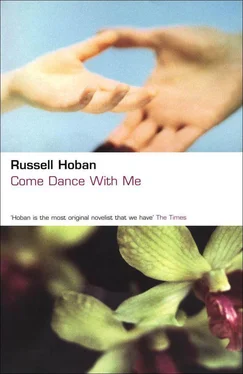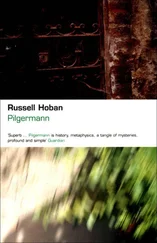30 January 2003. That guy next to me in the plane had some kind of trouble on his mind. Sex, money, death? Maybe all three. You never know what’s going on inside another person. My No. 4, Herb Jasper, on Tuesday he was OK, no problems. On Wednesday he put the muzzle of his 12-gauge in his mouth and blew his head off. You just never know.
26 January 2003. Here am I, not yet dead. There are no productions of Traviata with Violetta and Alfredo in their nineties. Who would pay money to see and hear it? Especially the ending. ‘Die already!’ the audience would shout. One only cares about Violetta because she is young and beautiful. And Schubert, he wrote ‘Der Tod und das Mädchen’ but he did not follow this with ‘Der Tod und die Greisin, ’ Death and the Old Woman’. Der Tod himself is bored with old women, how could he not be?
I still have my teeth, my eyes, my hearing and my mind. In me is the pretty girl I was, das Mädchen Anneliese Linde. If I close my eyes I see the sky reflected in the Weser and I hear the wind in the birches and smell the grasses warm from the sun. I am ready to go back there for ever. ‘Here am I,’ I say. But der Tod sees not the pretty girl and passes me by.
27 January 2003. Back in 1993 after our first night in the Pioneer Inn I woke up feeling not all that keen for a visit to Iao Valley State Park but Rudy seemed to think it was important and I didn’t want to spoil the day for Django.
We had breakfast and I wouldn’t have minded a few more cups of coffee but here was Rudy bright and early. Django said, ‘We going in Lucille?’ He had Crocodile with him and he was ready for action.
‘Partly,’ said Rudy, ‘and partly we goin’ be luggin’ it, brah.’
‘OK,’ said Django, ‘les’ do it, Uncle.’
‘How come you called me Uncle?’
‘I don’t know. Can you be my uncle?’
‘You got it, Nephew,’ said Rudy, and scooped him up and carried him off to the Land Rover. Django hadn’t ever wanted any of the guys in the band to be his uncle.
Lucille started off with her usual roar and we were off. The day was grey and cloudy. ‘How far is it?’ I asked Rudy.
‘About twenty miles, maybe little more. We gotta go down the coast to Maalaea Harbor then up Kahekili Highway to the Iao Valley. Keiko packed some sandwiches in case we get hungry while we’re out.’
‘Who’s Keiko?’ said Django.
‘My wife,’ said Rudy. ‘She’s Japanese.’
‘Could I have a sandwich now?’ said Django. He was never good at waiting for picnics. I was hungry too and so was Rudy so we finished the sandwiches and a flask of tea after we’d been on the road less than a quarter of an hour.
‘Are we going to see whales?’ said Django.
‘Iao Needle today, whales tomorrow,’ said Rudy.
We went down the coast with the sea to our right and the mountains to our left. Yesterday the mountains I’d seen from the veranda had looked mystical but these didn’t. I knew the islands were volcanic, risen out of the sea millions of years ago; looking at these mountains today, I didn’t like the idea of them bursting up out of the sea as if something down there had heaved them off its back. I thought of the mountains of experience in me and I shook my head to make my thoughts go away while Lucille shook, rattled and snarled as the Kahekili Highway began to climb a little and Rudy changed gears.
It was cool but not cold as we turned off for the valley. When we entered the park it grew cooler as the road took us among the fresh-smelling trees. We passed a shrine in which stood a madonna hung with leis. In front of her were three figures which I took to be wise men, also a couple of animals, sheep perhaps. Rudy didn’t stop. ‘Haole,’ he muttered.
‘Haole is Christmas?’ said Django.
Rudy shook his head. ‘Haole is foreigners. Those wonderful people who brought us Christianity, syphilis, and gonorrhoea.’
‘What are syphilis and gonorrhoea?’ said Django.
‘Diseases,’ I said. To Rudy I said, ‘Don’t you think this might be a little heavy for a four-year-old? And Django and I are foreigners.’
‘Sorry,’ said Rudy. ‘I was talking about foreigners way back. Now I’ll get off my soapbox for the rest of the day.’
Rudy parked the car and we walked up a paved pathway beside a stream. I’d put on a pair of trainers and was quite comfortable. The smell and sound of the water and the smell of the trees were refreshing. The air seemed full of presences.
‘What happened here?’ said Django.
‘How do you know something happened?’ said Rudy.
‘I can feel it,’ said Django. ‘Are there ghostes all around us?’ He always pronounced ‘ghosts’ with two syllables.
‘I can feel it too,’ I said. ‘What is it?’
‘Mana,’ said Rudy. ‘Spiritual power. In 1790 there was a big battle when King Kamehamea and his army wiped out the Maui warriors. What you’re feeling is the power of all those spirits. I’ve brought people here who couldn’t feel anything. I thought you would and I’m glad you did.’
‘A kind of test, was it?’ I said.
‘Everything is,’ said Rudy.
‘Your guys lost the battle?’ said Django to Rudy.
‘Don’t matter,’ said Rudy. ‘Kamehamea was trying to unify these islands.’
‘Did he?’ I said.
‘Yes, but it took him almost thirty years.’
‘Who’s king now?’ said Django.
‘Nobody,’ said Rudy.
The walk was long enough to tire Django after a while, and Rudy took him on his shoulders. Eventually we came to a sign that said IAO NEEDLE ELEV. 2250 FT. And there it was sticking up beyond the trees, not so much a needle as an irregular cone of darkness. Beyond it the valley was filled with cloud. The air was wet and the cold and rushing water of the stream sent up spray as it went splashing and tumbling and burbling over the rocks. The water was shouting as if it was the under-voice of the Iao Needle.
‘Talking,’ said Django.
‘Who?’ said Rudy.
Django pointed to the Needle.
‘What’s it saying?’ said Rudy.
‘No words.’
‘That rock could tell a lot of stories if it wanted to,’ said Rudy. ‘Maybe that’s what it’s doing in Needletalk.’
‘I can’t see his face,’ said Django.
‘Whose face?’ I said.
Again he pointed to the Needle.
‘If we go up on the bridge we can see it from a different angle,’ said Rudy. So we went up on the bridge. There was a roofed shelter at one end and we looked at the Needle from there. This time I could see that it was covered with green foliage or mosses.
‘Still no face,’ said Django.
‘I’ve never seen a face myself,’ said Rudy.
‘Whichever way I look, he turns his back,’ said Django.
‘Some rocks are like that,’ said Rudy. ‘My house is closer than the Pioneer Inn, so if it’s OK with you we’ll go there and you can rest up, then I’ll cook you a real Hawaiian dinner.’
30 January 2003. You never know where you’re going to be attacked by a metaphor or run over by a paradigm. In the Tom Bradley International Terminal in Los Angeles there’s a sort of pinball machine stood up on legs like a lecturer’s blackboard. It’s a ball-dropping machine. A conveyor on one side picks up balls that have rolled on to it from the channels they’ve dropped into. It carries the balls up to the top and drops them on to a Heath Robinson arrangement of such channels. There are various other parts that do things but the main action is ball-dropping. Not always the same because of random elements that vary the effects and causes. The machine is worn and doesn’t always pick the balls up. There are no plungers to work, you have no way of controlling what it does. The machine is just what it is and it does its own thing imperfectly in a variety of ways while making noises that satirise pinball machines. A man joined me while I was pondering this. He slapped the glass hard a couple of times, cursed and moved on while the machine made derisory noises. I stood there for a long time as other hopeful punters failed in their efforts. There was a signature on the thing: Rhoads ‘96. A deep one, Mr Rhoads.
Читать дальше












